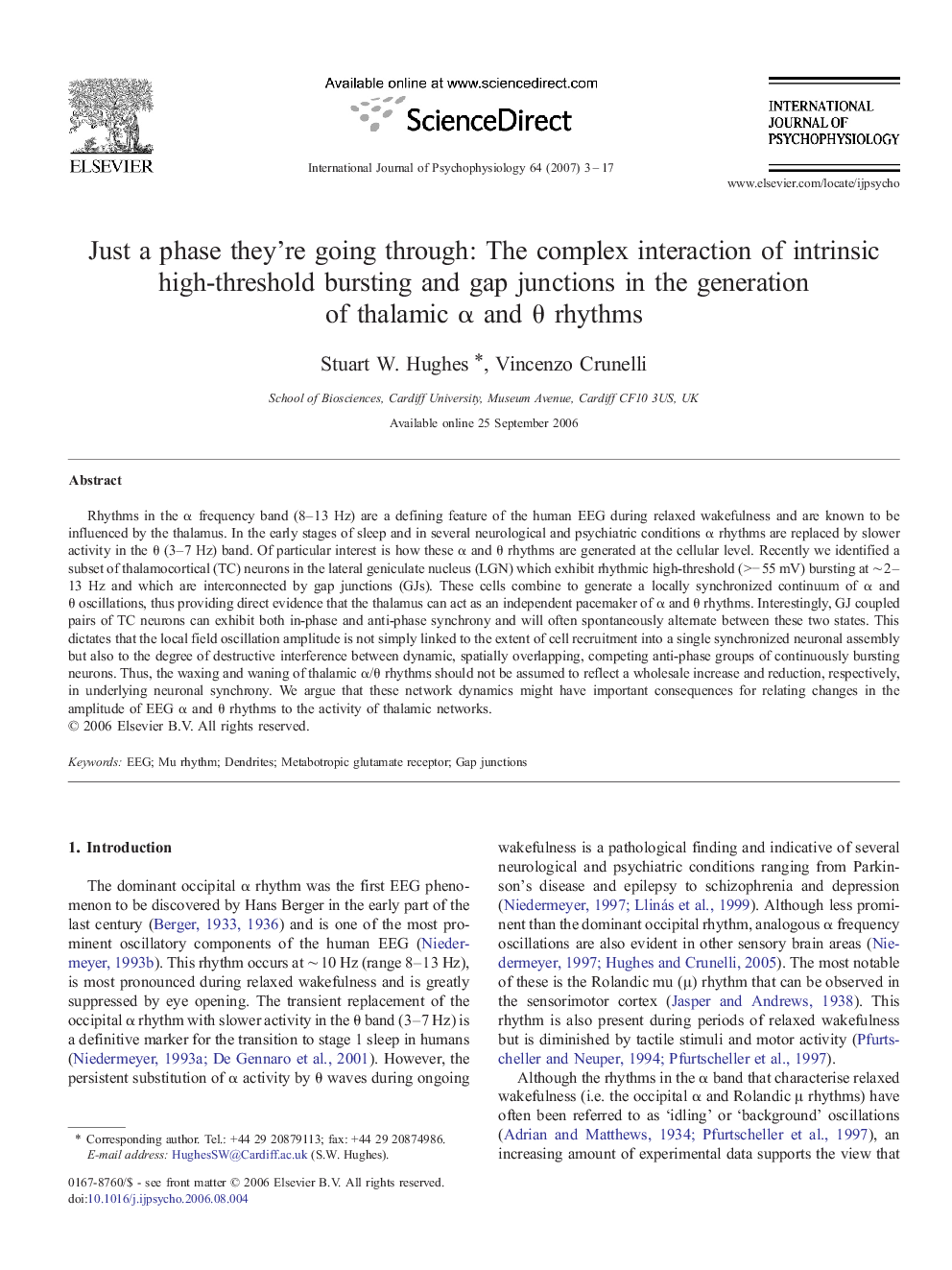| کد مقاله | کد نشریه | سال انتشار | مقاله انگلیسی | نسخه تمام متن |
|---|---|---|---|---|
| 931254 | 1474504 | 2007 | 15 صفحه PDF | دانلود رایگان |

Rhythms in the α frequency band (8–13 Hz) are a defining feature of the human EEG during relaxed wakefulness and are known to be influenced by the thalamus. In the early stages of sleep and in several neurological and psychiatric conditions α rhythms are replaced by slower activity in the θ (3–7 Hz) band. Of particular interest is how these α and θ rhythms are generated at the cellular level. Recently we identified a subset of thalamocortical (TC) neurons in the lateral geniculate nucleus (LGN) which exhibit rhythmic high-threshold (>− 55 mV) bursting at ∼ 2–13 Hz and which are interconnected by gap junctions (GJs). These cells combine to generate a locally synchronized continuum of α and θ oscillations, thus providing direct evidence that the thalamus can act as an independent pacemaker of α and θ rhythms. Interestingly, GJ coupled pairs of TC neurons can exhibit both in-phase and anti-phase synchrony and will often spontaneously alternate between these two states. This dictates that the local field oscillation amplitude is not simply linked to the extent of cell recruitment into a single synchronized neuronal assembly but also to the degree of destructive interference between dynamic, spatially overlapping, competing anti-phase groups of continuously bursting neurons. Thus, the waxing and waning of thalamic α/θ rhythms should not be assumed to reflect a wholesale increase and reduction, respectively, in underlying neuronal synchrony. We argue that these network dynamics might have important consequences for relating changes in the amplitude of EEG α and θ rhythms to the activity of thalamic networks.
Journal: International Journal of Psychophysiology - Volume 64, Issue 1, April 2007, Pages 3–17